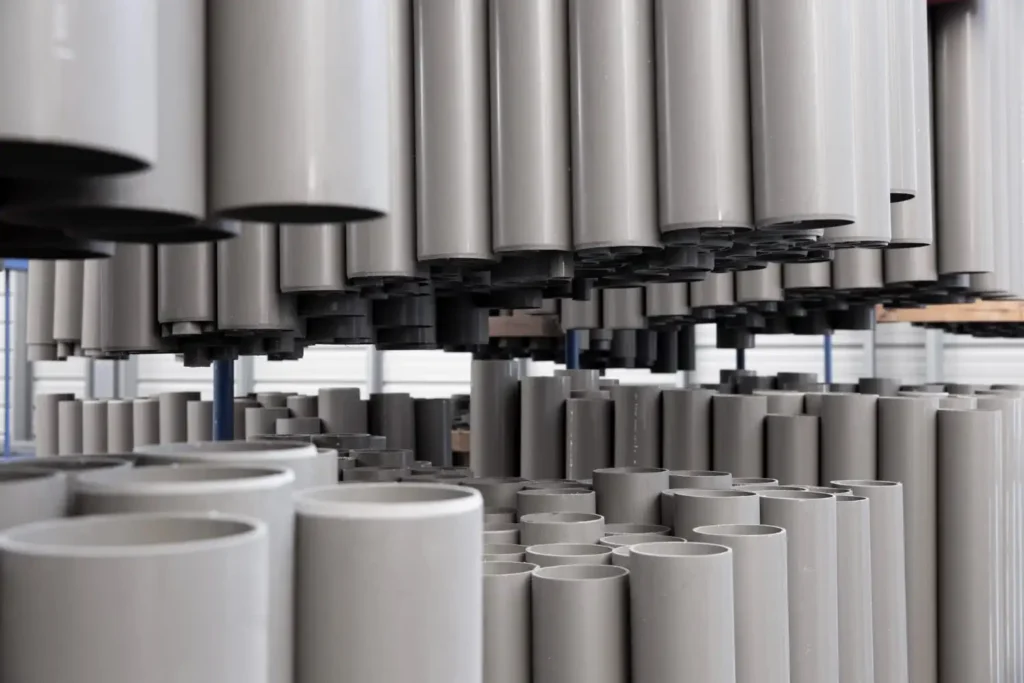
Clean Air, Smooth Operations: Understanding the Importance of Compressor Filters
Compressor filters are essential to compressed air systems. They silently ensure smooth operation and longevity as unsung heroes. The suitable compressor filters and regular maintenance can provide a consistent flow of clean air into your operations and reduce pressure loss. Every sound air compression system needs a good compressor filter. These filters ensure compressed air quality and system efficiency. They prevent contaminants from entering sensitive components, reducing pressure loss, energy use, and equipment life. Intake filters are used in industrial air compressor filters to eliminate contaminants. Discharged compressed air needs inline filtering to remove particulates, oil carryover, moisture, and smells.
Importance of Compressor Filters in Different Industries
Compressor filters are used in different industries based on their standards. Some companies can use one compressor, whereas others need many air compressor filters. Due to this variation, experts have tailored air compressor technology filters to each organization. Different air compressors and accessories fit different industries. Air compression filters are used in these industries:
A. Manufacturing: Compressed air is as essential to factories as water and electricity. Pneumatic tools streamline the manufacturing process, whether manually or automatically. Compressed air aids stamping, mixing, injecting, clamping, cleaning, and separating. It is powerful, accurate, and effective. Compressor filters are crucial to air quality. Producing excellent goods, running machinery, and powering pneumatic tools require clean, pressured air. Compressor filters in industrial facilities avoid contamination, reduce downtime, and maintain production standards, resulting in smoother operations and better output.
B. Automotive: Air compressors help in assembly, painting, and quality assurance in auto manufacturing. Compressed air has shortened car assembly and maintenance time and effort. An air compressor makes hours-long work take minutes. It boosts vehicle production productivity and DIY automotive projects. Vehicle building and repair pneumatic tools employ compressed air. In automotive facilities, compressor filters remove contaminants from compressed air that could damage delicate components or impair product quality. Body shops, factories, and service centers need clean compressed air to meet industry standards and maintain production.
C. Aerospace: Compressor filters are essential for maintaining air quality in the aircraft industry, where safety and accuracy are unavoidable. Pneumatic tools, aircraft systems, and ground support equipment are just a few uses for clean compressed air, essential for everything from maintenance hangars to aircraft manufacturing lines. Compressor filters preserve compressed air purity, necessary for dependable operation and adherence to strict industry standards in vital aerospace operations.
D. Pharmaceutical: Accuracy and hygiene are essential in the pharmaceutical industry. Air compressors facilitate precise results for pharmaceutical companies. Manufacturers produced the majority of medicinal tablets and pills using compressed air. Lab technicians can portion materials using pneumatic equipment and formulas. Compressed air is necessary for coating and hardening pharmaceuticals. It is also used in molding and labeling plastic pharmaceutical containers. Numerous pharmaceutical operations require clean, pressurized air. Compressor filters preserve patient safety and product purity by removing impurities and guaranteeing compressed air satisfies pharmaceutical quality standards.
E. Food and Beverage: Compressor filters are essential for guaranteeing product safety in the food and beverage industry, where hygiene is paramount. Clean, impure-free compressed air is necessary for preparing food and beverages. Air compressors reduce waste and expedite the food production process. Compressor filters lower the danger of product spoiling or contamination and guarantee compliance with food safety rules by preventing contamination and maintaining the quality of compressed air used in food processing.
F. Construction: Compressor filters guarantee the dependability of pneumatic tools and equipment on construction sites, where strength and accuracy are crucial. Pneumatic instruments, like drills, nail guns, and jackhammers, require clean, pressurized air to function correctly and power construction projects of all sizes. By removing impurities and moisture from the compressed air stream, compressor filters assist in extending the life of machinery and reducing downtime on building sites.
Common Issues and Problems Addressed by Compressor Filters
A. Contaminant Ingress: Air compression systems’ particles, dust, and debris threaten equipment and operations. Before pollutants can reach sensitive components, compressor filters are potent barriers. Compressor filters sift out contaminants for uninterrupted operation to prevent damage, downtime, and costly repairs.
B. Oil Carryover: Oil carryover in compressed air systems is a significant issue, especially in oil-free applications. Compressor filters remove oil aerosols and vapors in compressed air, reducing pollution and maintaining air quality. By catching oil droplets, compressor filters avoid product contamination and meet purity standards.
C. Pressure Loss: Pressure and flow issues are subtler. The machine may be operating. The air compressor can build up too much or not enough. Compressor filters improve airflow and prevent component fouling to reduce pressure loss. By allowing unrestricted airflow, compressor filters improve system performance, reduce energy waste, and extend equipment life, saving time and money.
D. Moisture Buildup: Compressed air systems often experience moisture buildup, which can cause corrosion, microbiological development, and equipment failure. Compressor filters help manage moisture levels by catching water droplets and preventing them from entering downstream components.
E. Equipment Wear and Tear: The constant use of air compression systems can wear out equipment quickly. Compressor filters reduce impurities and moisture, which accelerate component degradation. By keeping equipment clean and dry, compressor filters extend equipment life, save maintenance, and improve reliability for smooth operation.
Choosing the Right Compressor Filter
Choosing the correct compressor filter is essential for maintaining air compression systems’ longevity and best possible performance. Important factors to think about to make an informed choice are:
A. Factors to Consider: Air quality needs, operating conditions, flow rate, and air stream pollutants must be considered while choosing a compressor filter. Understanding your application needs and environmental circumstances helps you choose the compressor filter design and medium for performance and efficiency.
B. Compatibility with Compressor System: Compressor filters must be compatible with the compressor system. Consider mounting alternatives, inlet and outlet connections, and space limits to ensure system integration. Choose a compressor filter that matches your system’s installation requirements, minimizes compatibility concerns, and maximizes efficiency.
C. Quality and Reliability: Installing a good filter costs extra, but it pays off. High-quality filters last longer and require less upkeep. Air quality will match your application requirements because they are less likely to fail and let particles pass through the filter. Always buy compressed air filters from a reputable vendor to protect your equipment and procedures.
D. Maintenance Requirements: The projected operating time before filter replacement or service is service life. Consider filter replacement frequency, maintenance accessibility, and part availability. Consider operational conditions, pollutant levels, and service life when choosing a filter for your maintenance plan and budget.
Conclusion
The increasing prevalence of automation and more efficient technologies is driving the growth of the compressed filter market in the industrial sector. Compressor filters are essential instruments with a multitude of uses in various industries. In air compression systems, compressor filters are crucial parts that guarantee air quality, system performance, and equipment longevity. Future filtering technology developments promise even more efficiency and dependability, emphasizing the significance of investing in premium compressor filters.

